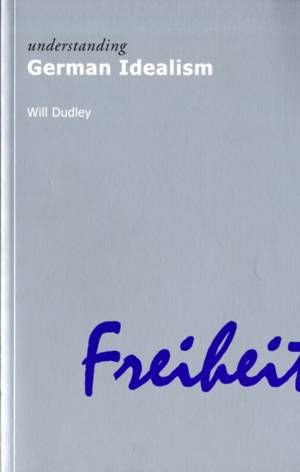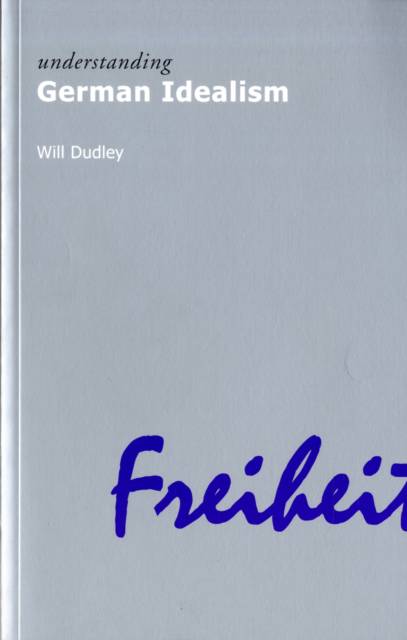
- Afhalen na 1 uur in een winkel met voorraad
- Gratis thuislevering in België vanaf € 30
- Ruim aanbod met 7 miljoen producten
- Afhalen na 1 uur in een winkel met voorraad
- Gratis thuislevering in België vanaf € 30
- Ruim aanbod met 7 miljoen producten
Zoeken
Omschrijving
"Understanding German Idealism" provides an accessible introduction to the philosophical movement that emerged in 1781, with the publication of Kant's monumental "Critique of Pure Reason", and ended fifty years later, with Hegel's death. The thinkers of this period, and the themes they developed revolutionized almost every area of philosophy and had an impact that continues to be felt across the humanities and social sciences today. Notoriously complex, the central texts of German Idealism have confounded the most capable and patient interpreters for more than 200 years. "Understanding German Idealism" aims to convey the significance of this philosophical movement while avoiding its obscurity. Readers are given a clear understanding of the problems that motivated Kant, Fichte, Schelling and Hegel and the solutions that they proposed. Dudley outlines the main ideas of transcendental idealism and explores how the later German Idealists attempted to carry out the Kantian project more rigorously than Kant himself, striving to develop a fully self-critical and rational philosophy, in order to determine the meaning and sustain the possibility of a free and rational modern life. The book examines some of the most important early criticisms of German Idealism and the philosophical alternatives to which they led, including romanticism, Marxism, existentialism, and naturalism.
Specificaties
Betrokkenen
- Auteur(s):
- Uitgeverij:
Inhoud
- Aantal bladzijden:
- 224
- Taal:
- Engels
Eigenschappen
- Productcode (EAN):
- 9781844650965
- Verschijningsdatum:
- 1/02/2008
- Uitvoering:
- Paperback
- Formaat:
- Trade paperback (VS)
- Afmetingen:
- 148 mm x 221 mm
- Gewicht:
- 294 g

Alleen bij Standaard Boekhandel
+ 167 punten op je klantenkaart van Standaard Boekhandel
Beoordelingen
We publiceren alleen reviews die voldoen aan de voorwaarden voor reviews. Bekijk onze voorwaarden voor reviews.








